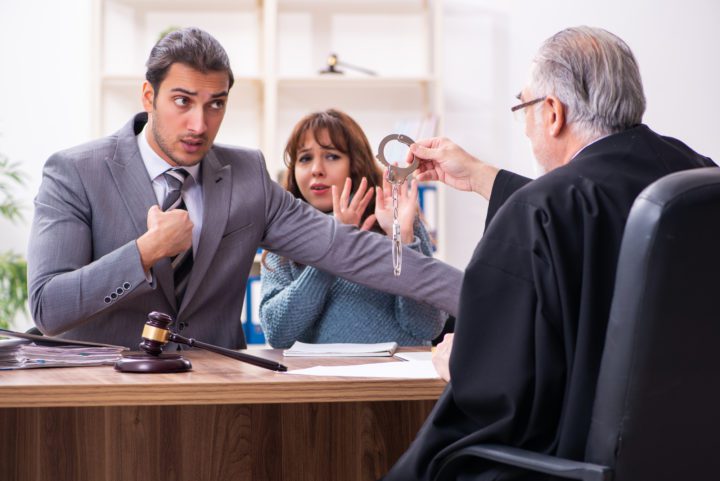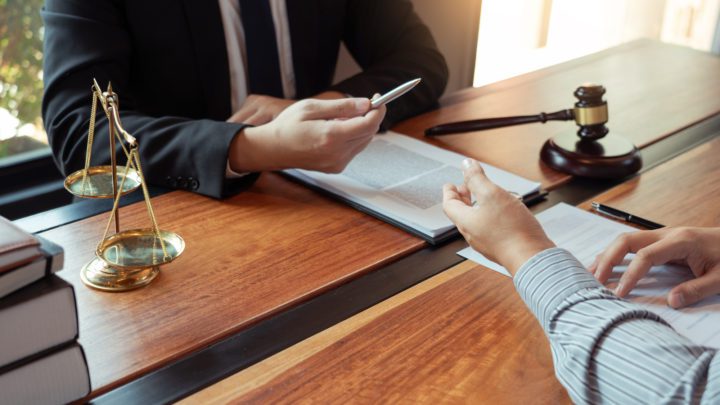How to Build a Strong Defense Against Drug Charges
Dealing with drug charges can be stressful and change your life. The legal system is complicated, and if you are found guilty, you could face fines, probation, or even jail time. These outcomes can have long-lasting effects on your personal and professional lives.

Image from Depositphotos
In the U.S., drug-related arrests represent a significant portion of overall criminal arrests. According to the FBI's Uniform Crime Reporting (UCR) program, about 1.5 million drug-related arrests occur annually, with drug possession being the most common offense.
Just because you're charged with a drug crime doesn't mean you have no choices. Drug charge defense attorney Delisa Williams suggests consulting with an experienced lawyer specializing in criminal law and drug laws can guide various strategies that could significantly impact the outcome of your case.
Knowing and preparing are your best defenses against minor or serious possession charges.
Understand Your Charges
An effective defense strategy requires knowing your opponent. Drug charges vary by substance, amount, and context, so familiarize yourself with your state's laws. Are you charged with possession, trafficking, or distribution? Each has implications and penalties.
Examine your entire indictment or complaint. Note drug types, amounts, and prior offenses that may affect your case. Understanding definitions and classifications will empower you to discuss these issues with your attorney.
A drug crime lawyer from The Law Office of Joshua A. Lopez, LLC says if you want legal advice, consult an attorney. They would delve into legal jargon to simplify how these charges would affect your future. Understanding the possible consequences, like fines or prison time, might encourage you to approach your defense with greater seriousness.

Image from Depositphotos
Gather Evidence Effectively
Getting solid proof is one of the most important parts of defending against drug charges. Find witnesses who can support your claim. Ask friends, family, or others who witnessed or participated in incidents that day. Record their story in writing for reliability.
Now, gather physical evidence for your case. Use relevant photos, videos, or documents. Saving receipts and text messages can strengthen your case. Get expert testimony too. For instance, a drug testing expert could dispute prosecution inaccuracies.
In addition to collecting evidence for the prosecution, make sure to inquire. These consist of police reports, lab results, and statements from witnesses. This helps identify case weaknesses and inconsistencies.
Finally, organize everything. An organized evidence collection makes your defense easier to present to your lawyer and in court.
Explore Legal Defenses
Learn about your legal defenses if you're charged with drug use. Knowing your options may help your case. Not possessing is a common defense. The case against you weakens if you don't control or know about the drugs. Entrapment is another defense. If police persuaded you to commit a crime you wouldn't normally do, you could use the entrapment defense.
You may also argue that an illegal search and seizure of evidence violated your rights and invalidated the evidence, making it admissible. The prosecution might struggle to demonstrate the drugs' integrity from the moment of seizure to testing, which raises a chain of custody defense issue.
Ultimately, being a medical user in a state that permits it could serve as a form of protection.
How a Criminal Defense Lawyer Can Protect Your Rights
Consult a Qualified Attorney
Drug charges are complicated, but your lawyer can explain your rights and options. Choose someone with drug law experience to guide you through the legal process.
Bring all case-related information to your attorney meeting. This includes evidence, witnesses, and your account. Greater transparency helps your attorney prepare the best defense strategy.
They would evaluate your case and suggest a course of action and can negotiate a plea deal or reduce charges depending on what happened.
It guarantees a legal expert to represent you. A qualified attorney can change a case. This step is crucial to building a strong drug defense.
Prepare for Court Proceedings
Getting ready for court is essential to handling matters well. Start gathering police reports, evidence, and witness statements. Keep everything chronologically organized for easy reference during the hearing. Your lawyer will explain your charges and consequences.
Be familiar with courtroom proceedings. Watch other cases at the courthouse if you can. This will prepare you and help you present yourself. First impressions matter—dress well. There is no need for details, but dressing well shows court respect.
Prepare for your testimony. Before testifying, discuss possible questions with your attorney. It will boost your communication confidence. Your message will be clearer too. Be calm in difficult situations. Always arrive on time. Punctuality helps you settle this case before proceedings begin and shows your seriousness.
Why You May Want to Hire An Accident Attorney






